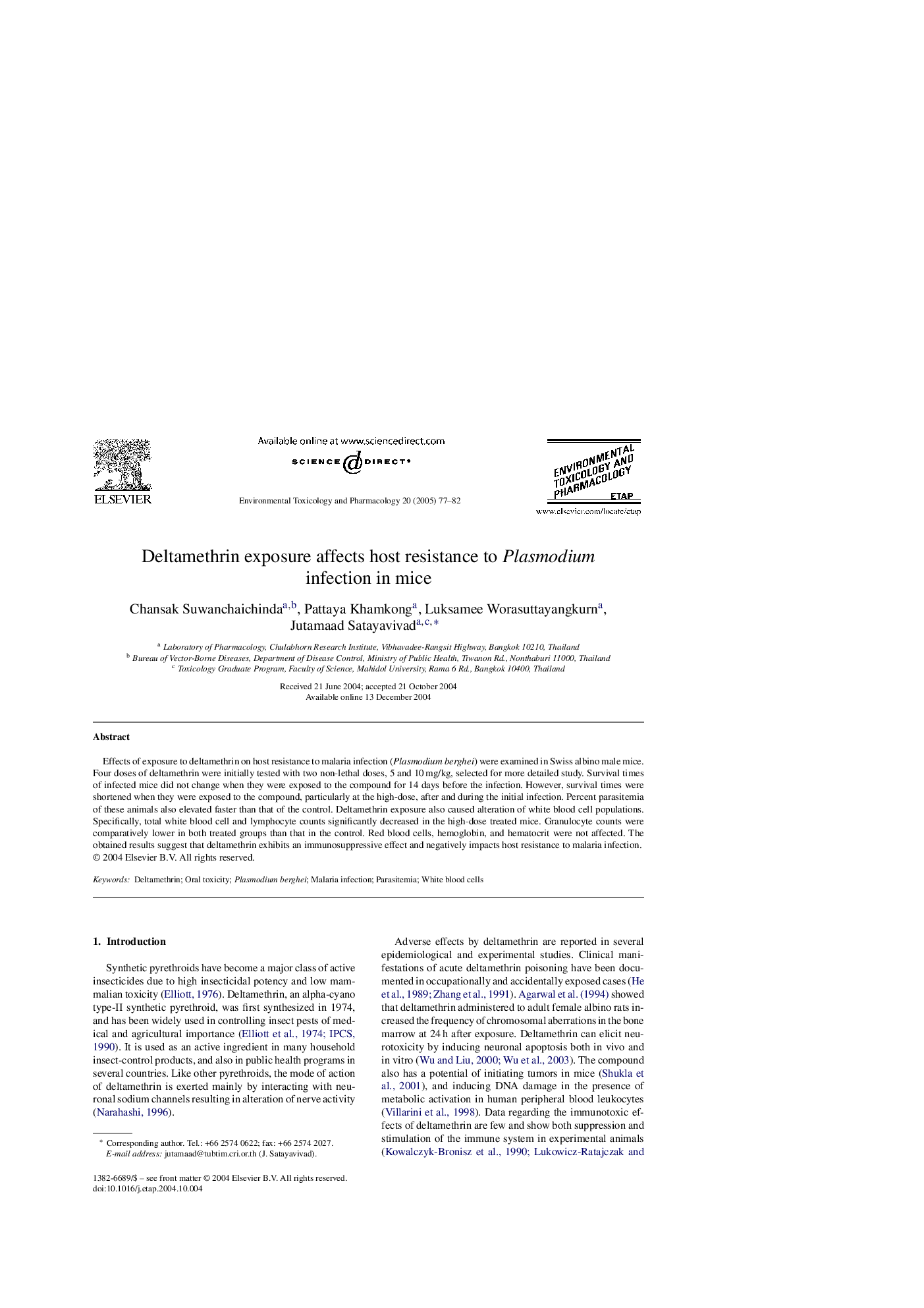| Article ID | Journal | Published Year | Pages | File Type |
|---|---|---|---|---|
| 9030204 | Environmental Toxicology and Pharmacology | 2005 | 6 Pages |
Abstract
Effects of exposure to deltamethrin on host resistance to malaria infection (Plasmodium berghei) were examined in Swiss albino male mice. Four doses of deltamethrin were initially tested with two non-lethal doses, 5 and 10Â mg/kg, selected for more detailed study. Survival times of infected mice did not change when they were exposed to the compound for 14 days before the infection. However, survival times were shortened when they were exposed to the compound, particularly at the high-dose, after and during the initial infection. Percent parasitemia of these animals also elevated faster than that of the control. Deltamethrin exposure also caused alteration of white blood cell populations. Specifically, total white blood cell and lymphocyte counts significantly decreased in the high-dose treated mice. Granulocyte counts were comparatively lower in both treated groups than that in the control. Red blood cells, hemoglobin, and hematocrit were not affected. The obtained results suggest that deltamethrin exhibits an immunosuppressive effect and negatively impacts host resistance to malaria infection.
Related Topics
Life Sciences
Environmental Science
Health, Toxicology and Mutagenesis
Authors
Chansak Suwanchaichinda, Pattaya Khamkong, Luksamee Worasuttayangkurn, Jutamaad Satayavivad,
